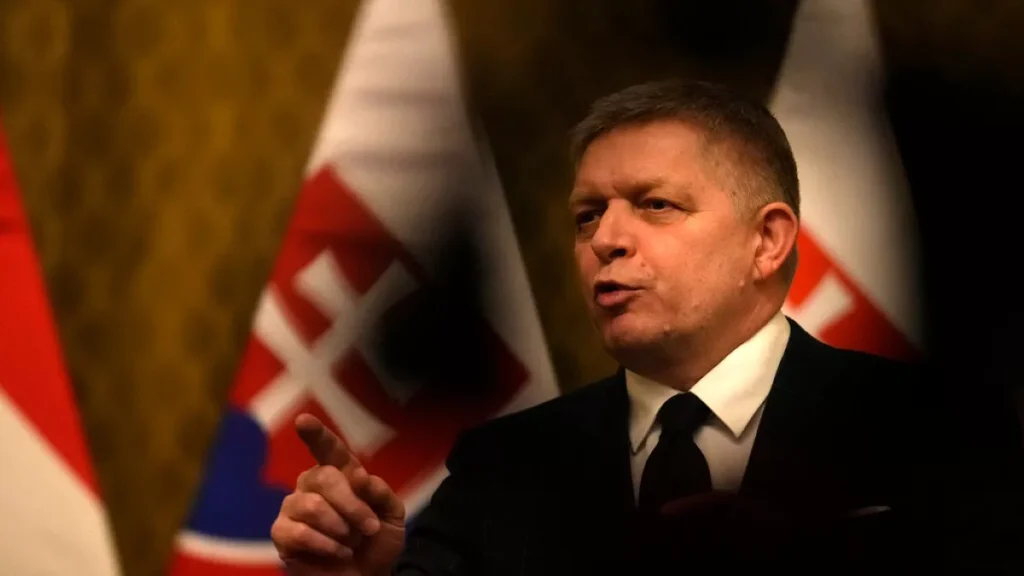Slovakia’s Prime Minister, Robert Fico, has once again found himself at the center of political debates, making bold decisions that are shaping the country’s future. Known for his strong stance on national interests, Fico’s leadership continues to stir both praise and criticism. But what do his recent moves mean for Slovakia and its people? Let’s take a closer look.
A Controversial but Resilient Leader
Robert Fico has been a dominant figure in Slovak politics for decades. As the leader of the SMER-SD (Direction – Social Democracy) party, he has served multiple terms as prime minister. His political career has been marked by both accomplishments and controversies. Critics accuse him of being too close to Russia, resisting European Union (EU) policies, and limiting press freedom. Supporters, on the other hand, admire his nationalist approach and focus on social welfare.
Despite stepping down as prime minister in 2018 amid protests over the murder of journalist Ján Kuciak, Fico made a strong comeback in 2023, securing another term as Slovakia’s leader. His return signaled a shift in the country’s political landscape, moving away from Western liberal policies toward a more independent, sovereignty-focused approach.

Clashing with the EU on Ukraine and Russia
One of the most talked-about issues under Fico’s leadership is Slovakia’s stance on the Russia-Ukraine war. Unlike many EU leaders who have provided unwavering support to Ukraine, Fico has taken a more cautious approach. He has questioned the effectiveness of sending military aid to Kyiv, arguing that diplomacy should be prioritized over conflict. This position has put him at odds with EU officials and neighboring countries that strongly support Ukraine.
Fico’s stance reflects a growing divide within Europe. While Slovakia remains a member of the EU and NATO, Fico’s government has shown resistance to fully aligning with Western policies on Ukraine. This has raised concerns about Slovakia drifting closer to Russia, though Fico insists his goal is to protect national interests and avoid unnecessary involvement in war.
Tighter Grip on Media and Opposition
Another area where Fico has made waves is his treatment of the press and opposition figures. His government has proposed laws that could restrict the media’s ability to criticize the administration. These efforts have sparked fears of declining press freedom in Slovakia, with journalists warning that such measures could silence critical voices and lead to increased government control over information.
Opposition parties have also accused Fico of using state power to weaken political rivals. Recent legal actions against opposition leaders and activists have raised questions about the state of democracy in Slovakia. Fico, however, denies these allegations, stating that his administration is simply enforcing the law and protecting national security.
Economic Challenges and Social Policies
Slovakia’s economy has faced significant challenges, particularly due to global inflation and the ongoing energy crisis. Fico has promised to tackle these issues by increasing state support for vulnerable citizens. His government has introduced policies aimed at reducing energy costs, raising pensions, and supporting businesses affected by the crisis.
However, critics argue that some of these measures are unsustainable in the long run. Slovakia’s economy heavily relies on EU funding, and Fico’s strained relationship with Brussels could impact future financial aid. Economic experts warn that if Slovakia distances itself too much from the EU, it could face difficulties attracting foreign investment and maintaining financial stability.
What’s Next for Slovakia?
As Fico continues to push his nationalist agenda, Slovakia finds itself at a crossroads. His leadership is redefining the country’s position in Europe, but at what cost? While his supporters believe he is fighting for Slovak sovereignty and the interests of ordinary people, critics fear that his policies could lead to increased isolation and democratic backsliding.
The coming months will be crucial for Fico and Slovakia. If he manages to balance his nationalist policies with economic stability and EU cooperation, he could strengthen his leadership. However, if tensions with Brussels escalate and press freedom continues to decline, Slovakia may face a turbulent future.
For now, Robert Fico remains one of Europe’s most talked-about leaders, and his bold moves are reshaping the nation in ways that will have long-lasting effects.
George Segal’s Incredible Journey: From Hollywood Icon to Art Legend






